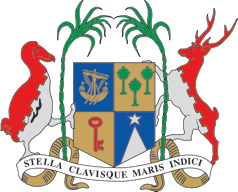About the Client
Registrar-General’s Department (RGD), Republic of Mauritius.
The Mauritius Registrar-General’s Department is a revenue-generating department operating under the aegis of the Ministry of Finance, Economic Planning and Development of the Republic of Mauritius. Its main functions include land registry, registration of particulars of deeds, and valuation of immovable and mobile properties. The principal objective of the Department is to register particulars of events accurately and collect duties accordingly.
Challenge
The overall objective of the project was the optimization and computerization of the 30 registers operated by the Department and the creation of the Public State Integrated Enterprise Resource Planning and Registration/Transaction Processing System (e-Registry).
The goal was to develop a streamlined working eRegistry platform which was vital for the economic and legal ecosystems of Mauritius and aimed at better serving individuals and businesses, allowing for easier and faster registration of documents, and improving collection of duties and taxes.
Solution
Transforming the Registrar-General’s Department from a traditional paper based Service to an e-Service organization.
In response to RGD’s needs, technical infrastructure for the optimization of the registration and information delivery efforts was established while reducing associated costs. The e-Registry System, a component of the Mauritius eRegistry Project (MeRP) covered two main areas: Modernization and optimization through the deployment of hardware and software; Bringing the services online and allowing access to the different stakeholders via a web-based, single point Self-Service user interface.
Amongst other achievements, a data center, workplaces, queue management system, and network were established during the modernization phase. This was followed by the development of a modern e-Registry system which facilitated the automated processing of electronic registration services, provision of information services to external users, and data exchange with external registers and services, including electronic signature providers, online payment providers and others.
NRD Companies Services provided
- Review of legal framework and procedures, recommendations for improvement
- Establishment of modern technical infrastructure
- Development of information system
- Execution of data migration from legacy information systems
- System user training
- 5 years of maintenance and support
Results
Implementing RGBs e-Registry was a major shift from a paper based process to a digital platform allowing individuals and businesses to electronically register all documents related to loans, transfer of rights, and land registration.
The e-Registry system is now used by more than 150 RGD officers and more than 1000 external daily users. During the registration processes, documents are scanned and metadata captured to support electronic records and registration transactions management. The captured metadata enables search, tax calculation, and reporting features. The use of internal and external information crosscheck, automates and streamlines verification processes, thus increasing the overall data quality. Third parties can now also search the register for a fee.
Mauritius Registrar-General’s Department (RGD) won an award for the best digital reform. An award was established by the Ministry of Civil Service and Administrative Reforms in Mauritius. RGD attributes their win to the Mauritius E-Registry project.
Replicable elements
The solutions implemented in Mauritius are easily replicable and countries worldwide could enjoy the same benefits by retaining the services of NRD Companies.
SDGs addressed
By improving service delivery to individuals and businesses, improving the business ecosystem, and contributing to good governance and transparency, the project addressed three major UN Sustainable Development Goals:
- Promote sustained, inclusive and sustainable economic growth, full and productive employment and decent work for all
- Build resilient infrastructure, promote inclusive and sustainable industrialization and foster innovation
- Promote peaceful and inclusive societies for sustainable development, provide access to justice for all and build effective, accountable and inclusive institutions at all levels








